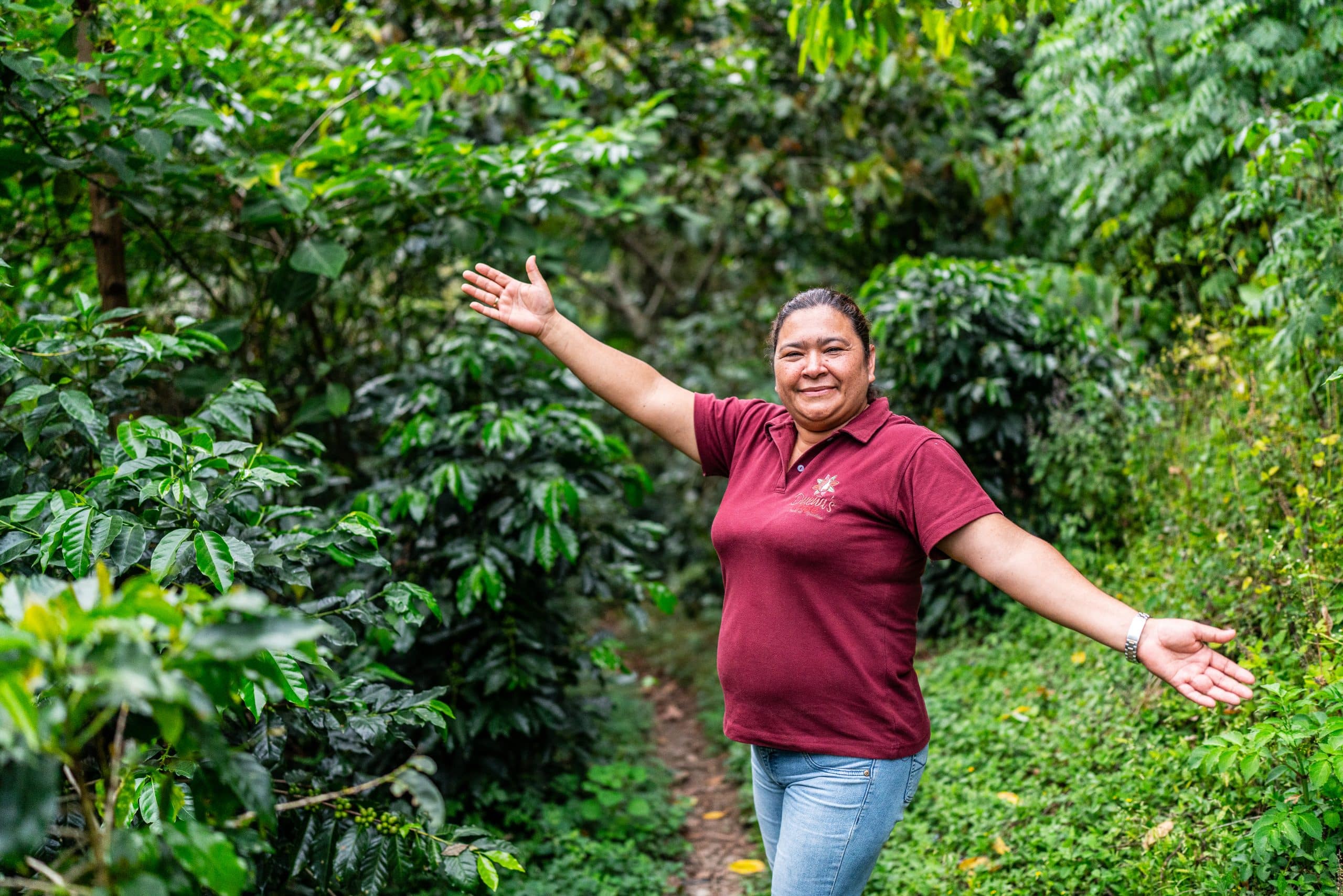Teresa Pedro Esteban (right) and other members of Asobagri. Credit: Adam Finch/Root Capital
In the remote corners of Sierra de los Cuchumatanes, the highest non-volcanic mountain range in Central America, lie coffee fields tucked away amid the clouds and tended to by predominantly Mayan indigenous communities. Located in the western highlands of Guatemala, this region is known for producing some of the world’s finest coffees.
Asobagri, a cooperative made up of over 1,200 certified organic, Fair Trade producers, and Root Capital’s first ever client, is based in this region.
The Challenge
In the last 25 years, the Guatemalan coffee industry has faced significant challenges that threatened its sustainability and productivity, particularly impacting women in the sector.
Climate change has affected coffee yields through rising temperatures and erratic rainfall, leading to increased pest outbreaks like coffee leaf rust. Economic fluctuations and global market volatility have hindered small-scale farmers’ profitability, prompting many young people to migrate to urban areas or abroad for better opportunities.
Women often bear the brunt of these challenges as they remain behind to manage farms and households, further strained by labor shortages. This is compounded by the additional barriers women face, such as limited access to land, finance, and decision-making processes.
These factors create immense pressure on an industry vital to the livelihoods of countless families.

Hilda Barrios, former Gender Commission President at Asobagri. Credit: Adam Finch/Root Capital
Our Collaboration
In 1999–the year Asobagri exported its first bag of coffee to the United States–Root Capital loaned them $73,000. The following year, the cooperative reformed its governance structure and made a transformational commitment to include representation from smallholder farmers. Central to those changes was women’s representation.
In the 25 years since we first started working with Asobagri, Root Capital has loaned them over $6 million and provided more than 875 days of advisory services. Root Capital has also provided Asobagri with three Resilience Grants: two were to support the protection of employees and associates from COVID-19 and the other was to acquire and implement financial software to improve the cooperative’s internal credit management.
“We have monthly meetings with the board of directors of Asobagri and the gender commission. Women now have a voice and vote. We can discuss how our members can be helped in the communities,” explains Hilda Barrios, former Gender Commission President at Asobagri.
The Impact
The integration and promotion of women in leadership positions has had far-reaching benefits to the community. In 2019, 182 women associates came together to launch “Café Dueñas” (Women-owned Coffee). This specialty coffee sells $2 more per bag at international markets and is an important source of income for the women.
“Dueñas Café is what represents us as women,” says Hilda. “We own our own product. The coffee we sell by the pound has a better price, nationally and internationally.”
The profits from Cafe Dueñas are used to create a fund that provides low-interest loans for women farmers to pay for pre-harvest activities, like critical labor, and subsidize healthcare expenses. These funds are also available for the wives and companions of male associates.
“The additional income has made many not want to migrate because here they have the opportunity of getting their own money. It has helped their children not migrate also because they can be members of the association,” says Hilda.
Today, 33% of Asobagri’s producers are women.
While coffee growing is not inherently a Mayan tradition, these indigenous communities have woven coffee production into their more traditional agricultural practices and are teaching future generations to do the same.
